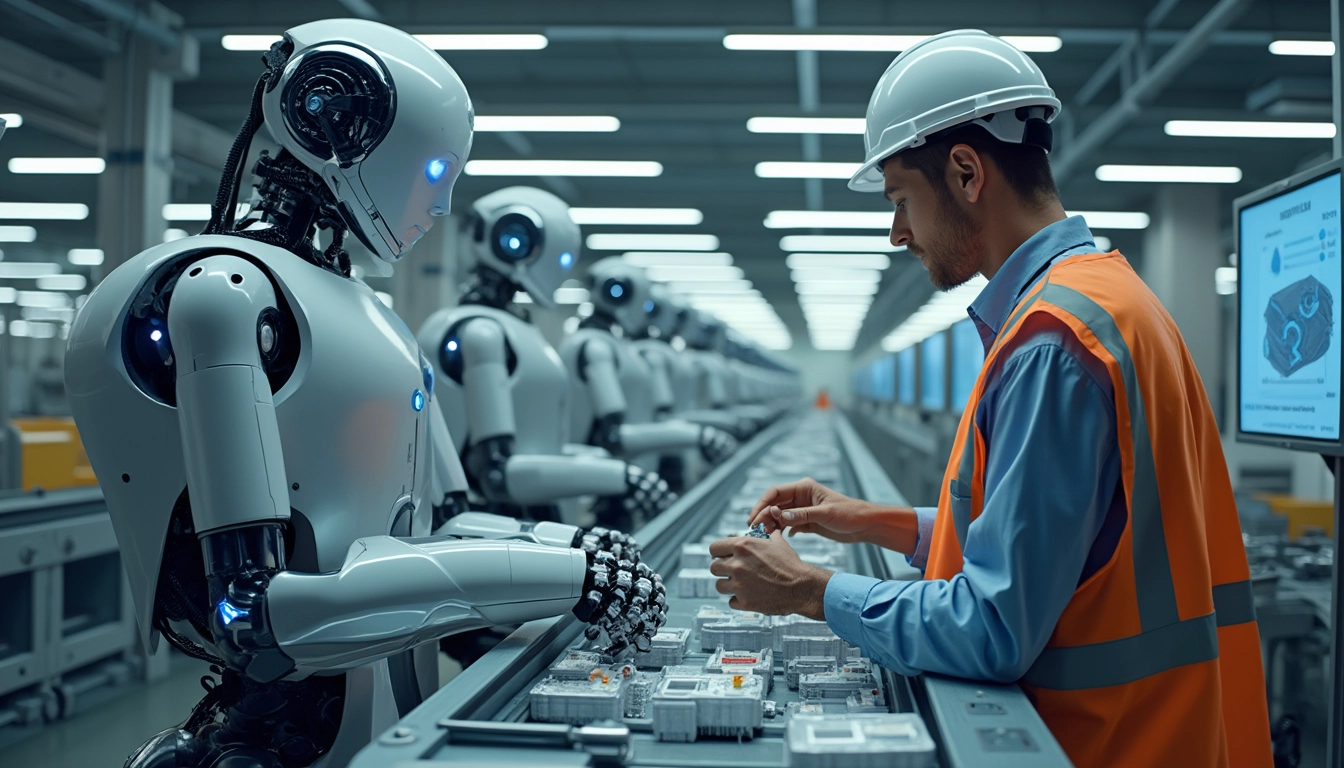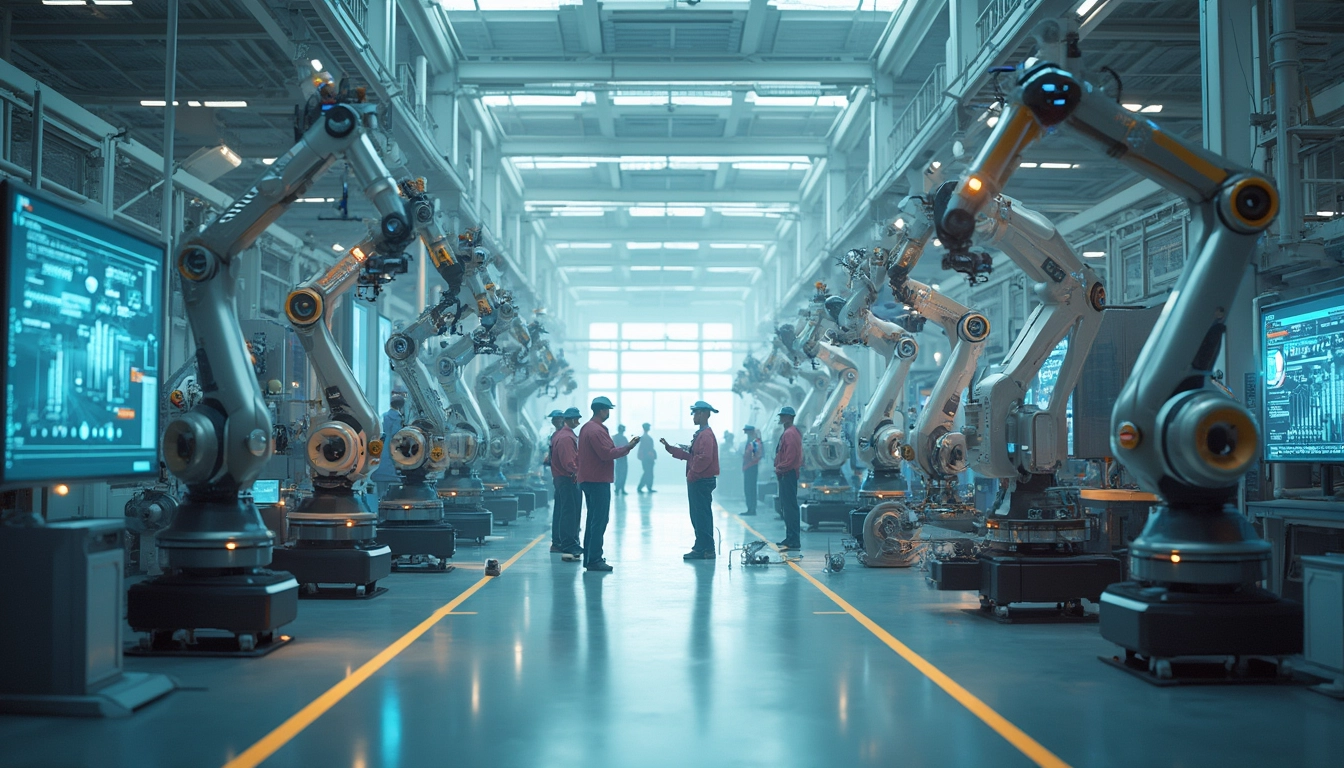
Global Robotics Industry Surges with AI Integration Across Multiple Sectors
The robotics industry is experiencing unprecedented growth as artificial intelligence enables robots to expand beyond traditional manufacturing settings into diverse sectors. Industrial robot installations have reached $16.5 billion globally, while professional service robot sales have increased by 30%, signaling a transformative shift in how automation technologies are being deployed across industries.
Table of Contents
Key Takeaways:
- Over 4 million industrial robots are currently operating in factories worldwide, double the number from recent years
- AI-powered robots are demonstrating enhanced capabilities in real-time decision-making and predictive maintenance
- Collaborative robots are making automation more accessible to small businesses
- Digital Twin technology is revolutionizing robotic performance optimization
- The integration of robots in healthcare and critical environments marks a significant expansion beyond manufacturing
The AI Revolution in Robotics
The fusion of artificial intelligence with robotics has created a new generation of machines capable of sophisticated data interpretation and autonomous decision-making. These AI-powered robots can now respond dynamically to environmental changes, making them valuable assets in various industries. As noted in recent market analyses, technological advances are transforming traditional devices and pushing the boundaries of automation.
Collaborative Robots: Breaking Down Barriers
Collaborative robots, or cobots, are revolutionizing workplace dynamics by enabling direct human-robot interaction. These machines are particularly valuable for small and medium enterprises (SMEs) due to their increased autonomy and simplified programming. The integration of mobile manipulation capabilities has expanded their utility in tasks ranging from assembly to packaging.

Digital Twin Technology and Customization
The implementation of Digital Twin technology has transformed how robots are developed and optimized. This virtual replication allows for comprehensive testing and performance enhancement before physical deployment. The rise of customized robotic solutions with modular designs has made automation more adaptable to specific industry needs. Similar to how AI is revolutionizing smartphone technology, these advances are making robots more versatile and user-friendly.
Expanding into Healthcare and Critical Environments
Humanoid robots are increasingly finding applications in healthcare and personal assistance. Their enhanced dexterity and AI capabilities make them suitable for complex tasks in medical settings and hazardous area inspections. The growing AI market is driving innovations in this sector, enabling more sophisticated human-robot interactions.
Economic Impact and Industry Transformation
AI-driven automation is reshaping industries by addressing supply chain disruptions and labor shortages. The post-pandemic era has highlighted the importance of resilient automation solutions. For businesses looking to streamline their operations, platforms like Latenode offer powerful automation tools for various business processes.
Ethical Considerations and Future Outlook
As robots become more prevalent, addressing ethical challenges and privacy concerns becomes crucial. Current regulatory frameworks, including the EU’s AI Act and GDPR, are working to ensure responsible deployment of robotic technologies. The focus remains on maintaining secure human-robot interaction while maximizing the benefits of technological advancement.


